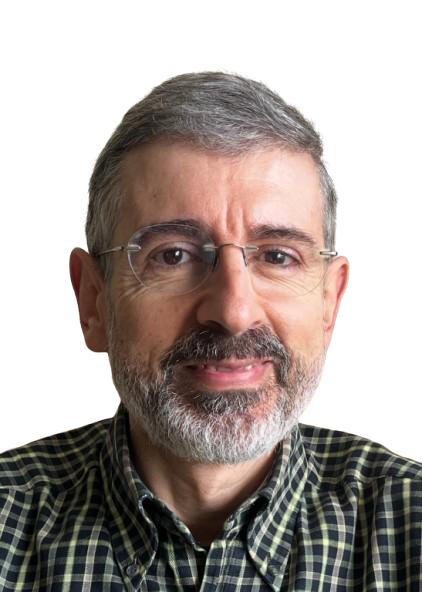looking death in the eye: reflections of a Christian doctor
Death is an infinite mystery. There are few who can speak of it in the first person, and few accounts of those who have recovered from a confirmed diagnosis of clinical death. And even in these cases, you get the impression that these people haven’t crossed the final frontier; they haven’t made their final journey to another dimension.
In general, human beings fear the unknown, and death, as the French philosopher Levinas said, is the most unknown of the unknown. That’s why most people prefer not to think about death, except on tragic and devastating occasions, such as the death of a family member or friend, a serious accident or the revelation of a fatal illness. However, as the evangelist Billy Graham said, ‘I am convinced that only when a man is prepared to die is he also prepared to live’. [1]
My personal reflection about death started during my teenage years, after the sudden death of some people close to me. It continued during medical school, specialising in vascular surgery and coordination of organ harvesting from cadaveric donors. In my master’s dissertation in bioethics, I researched the concept of brain death and its medical, ethical, and legal implications. However, the most relevant answers I found on the problem of death were not obtained from philosophers, theologians, sociologists, or health professionals. They were the result of my faith in Jesus Christ, the only one who can declare with all authority that he is alive and has power over death and hell (Revelation 1:17-18).
Martin Luther King Jr. wrote shortly before his assassination in 1968: ‘God, through Christ has taken the sting from death, and it no longer has dominion over us. This earthly life is merely an embryonic prelude to a new awakening.’ [2]
what is death?
Death is considered a dramatic reality of human existence and the main taboo of our age. It is a unique and irreversible event for each person. The diagnosis of death almost always results from an irreversible cardiorespiratory arrest, whatever the underlying disease or the factor that caused the termination of vital functions.
Clinical death means the irreversible cessation of the functions of the human being’s various organs and systems, up to the point where all the cells decompose. However, at a cellular level, death is more of a gradual process than an event defined in time. Except in extreme situations, such as a nuclear explosion, in which all the body’s cells die immediately, most of the time, the cells most sensitive to oxygen deprivation, such as those in the brain, are the first to decompose. Certain body cells that are more resistant to circulatory arrest, such as bone, tendon and skin cells, can take days, weeks, or even months to die. However, as the World Medical Association’s Sydney Declaration states, ‘the clinical interest lies not in the state of preservation of single cells, but in the fate of a person’. [3]
Someone once said that there are only two things certain in life: taxes and death, but that’s not true. Some people manage to live without paying taxes, but death is universal and inevitable. It is the most egalitarian event in human existence because it does not discriminate between men and women, rich and poor, or celebrities and ordinary people.
In the past, death was a social and relatively public event. Most of the time, it took place at home, and the dying person was surrounded by family, friends, neighbours, and even children who came to say goodbye and pay their last respects. At that time, the main concern was not so much with the suffering and death itself but with the salvation of the soul. Throughout the twentieth century, the place of death changed from the home to the hospital or healthcare facility, where death is often hidden and solitary behind a curtain. The presence of the patient’s relatives is restricted and made difficult. Healthcare professionals themselves sometimes find it difficult to deal with the death of patients. Medical visits to dying patients are often reduced, and physical suffering is not always dealt with effectively, much less emotional and spiritual suffering.
The time of death is usually unpredictable, although we can influence our longevity by the way we live. Most diseases, such as cardiovascular and oncological diseases (the two leading causes of death worldwide), are influenced by behavioural risk factors related to lifestyle. Recent studies have shown that adopting healthy behaviours such as not smoking, controlling weight, exercising, avoiding alcohol consumption, and eating a healthy diet can contribute to a lower incidence of cardiovascular disease, cancer, and type 2 diabetes and lead to an increase in life expectancy. [4, 5]
The enormous medical and technological progress achieved in the last decades has led to a considerable increase in the average life expectancy, especially in developed countries. [6]
Through improved hygiene and sanitary conditions, effective vaccination, and generalised access to health services, prevention has contributed more to this increase in longevity than the possibility of treating many diseases. But despite all the successes in the fight against disease, sooner or later, the moment of death always arrives.
the death that gives meaning to life
The good news is that death is not the end of the human being, because each one of us is a biopsychosocial and spiritual entity consisting of a body, a mind, and a spirit. The spiritual dimension of the human being is eternal and, therefore, does not disappear, nor is it annihilated by bodily death.
It is my personal conviction, based on the Word of God, that in the person of Jesus Christ, God made man, we find the answer to the existential problem of death, considered an enemy that was not part of the original plans of the Creator. The sacrificial and voluntary death of Jesus on the cross of Calvary gives meaning to the lives of all those who, through the centuries, have accepted and followed him as the promised Messiah and the only way to God. Jesus died to set free ‘those who all their lives were held in slavery by their fear of death’. (Hebrews 2:15) For Christians, the attitude towards death should be like that of the Apostle Paul, who recognised that he was faced with a dilemma: to remain alive and enjoy the fruit of his labour or ‘to depart and be with Christ, which is better by far’. (Philippians 1:22-23). In his letter to his young disciple, Timothy, shortly before he was put to death by order of the Roman Emperor, Paul expresses his unshakeable confidence in the promises of God: ‘For I am already being poured out like a drink offering, and the time for my departure is near. I have fought the good fight, I have finished the race, I have kept the faith. Now there is in store for me the crown of righteousness, which the Lord, the righteous Judge, will award to me on that day – and not only to me, but also to all who have longed for his appearing.’ (2 Timothy 4:6-8)
Death is not the end! The central message of the gospel is the destruction of death and the certainty of eternal life through Christ. If we believe in Jesus Christ and his words, we can face death and the future with confidence. Jesus said: ‘My Father’s house has many rooms; if that were not so, would I have told you that I am going there to prepare a place for you? And if I go and prepare a place for you, I will come back and take you to be with me that you also may be where I am.’ (John 14:2,3)
Most of us do not know at what moment we will make the last journey and finally will have the opportunity to ‘look death in the eye’. It could be many years from now or in the next few minutes. One thing is certain: the decisions we make today while we live in this world, limited by time and space will have eternal consequences. After death, there will not be another opportunity to repent and have peace with God, as we read in the letter to the Hebrews 9:27: ‘People are destined to die once, and after that to face judgment’.
I found peace with God and the assurance of salvation and eternal life when I surrendered my life to Jesus Christ, repenting of my sins and believing that he died on the cross in my place. From that moment on I have never feared death again because I know where I am going when I die. And you?



